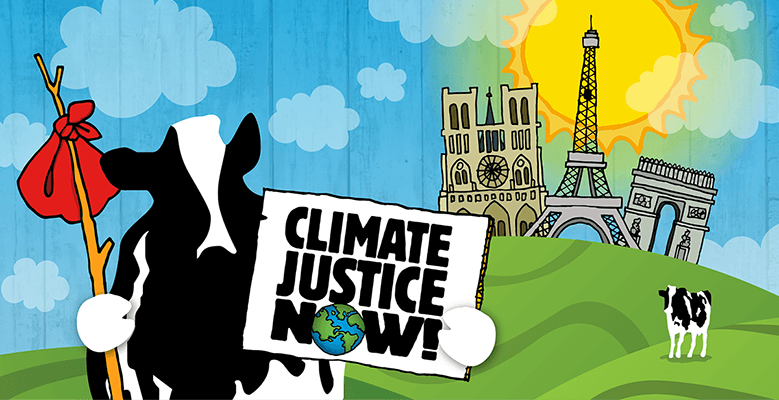December 1, 2015
As the Paris UN Climate Summit kicks off, there’s a lot of anticipation around the efforts of the 194 countries negotiating to reach a deal on curbing carbon emissions, finance the global transition to clean energy, and ensure that the most vulnerable countries have the financial assistance to adapt to the changes already being felt. Leading up to COP 21, countries representing 95% of global emissions have submitted pledges to reduce the level of greenhouse gases (GHGs) they emit between now and 2025.
Crafting a mechanism to enforce these pledges is one component of success in Paris. But there is a major call to make sure negotiators also address these issue in a way that is fair and equitable, and that acknowledges the fact that the worst impacts of climate change are disproportionately concentrated in the poorest and most vulnerable countries. A successful agreement must include a long term commitment to finance developing nations' transition to a clean energy future.

For the isolated communities of the world’s island nations, climate change is exacting an extremely unfair toll, so it’s not surprising that they are pushing the negotiations for even more ambitious emissions cuts and an even lower long term goal of keeping ocean temperature warming below 1.5ºC, compared to the current goal of 2 ºC. Already vulnerable from being so close to sea level, these low-lying nations are watching their precious landmass disappear as sea levels rise— an impact of climate change that is happening even faster than predicted. Even as encroaching salt water kills off the trees islanders harvest for fruit, the rapid acidification of the ocean is decimating coral reefs, a habitat for a quarter of all marine life. Add in the damage and disease brought by intensifying hurricanes, and it’s no wonder that island nations are suing fossil fuel companies.
Just two weeks before the UN Climate Conference, terrorists rocked Paris with a series of brutal attacks— leading to even more concern around the massive waves of refugees coming into Europe. What’s that got to do with climate change? Just consider the effects of record drought conditions in Syria and the added pressure on an already volatile region that has lead to a huge human exodus. It’s not hard to see why the Pentagon already considers climate change a national security issue. And when you look into the stories of these refugees, it’s clear that we’re already seeing global climate justice playing out across international and domestic borders.
And yeah, global climate justice includes the US, too. Rising sea levels will displace poorer communities and devastate disadvantaged coastal neighborhoods. Four of the top ten cities most vulnerable to damaging floods are in the US, and flood damage around the world will cost $1 trillion a year . Repeated studies show that poorer communities and people of color are unequally impacted by pollution from mountain top removal, power plants, toxic waste, car smog, and a whole host of environmental health hazards.
If we do nothing, climate change will likely become the leading cause of humanitarian crises of this century. Already, organizations like UNICEF are predicting that children will be the most impacted of any group from climate change. We all know that’s not the sort of future we want to hand down. Let’s keep the pressure on with actions around the world, and continue to call on policy makers to transition to 100% clean energy by 2050.
Recent Articles
Join The Climate Movement
-
With a landmark climate action agreement in place including commitments from 196 countries to fight climate change, now is the time to keep the pressure on and ensure swift action. This climate agreement wouldn’t have happened without millions of people around the world taking action. And we won’t be able to meet the ambitious goals of the Paris Agreement without millions and millions more people taking action in support of a rapid transition to clean energy. Paris was just the beginning, not the end. Let’s get to work towards a greener, cleaner future. Add your voice to the millions demanding action and sign the petition today!



